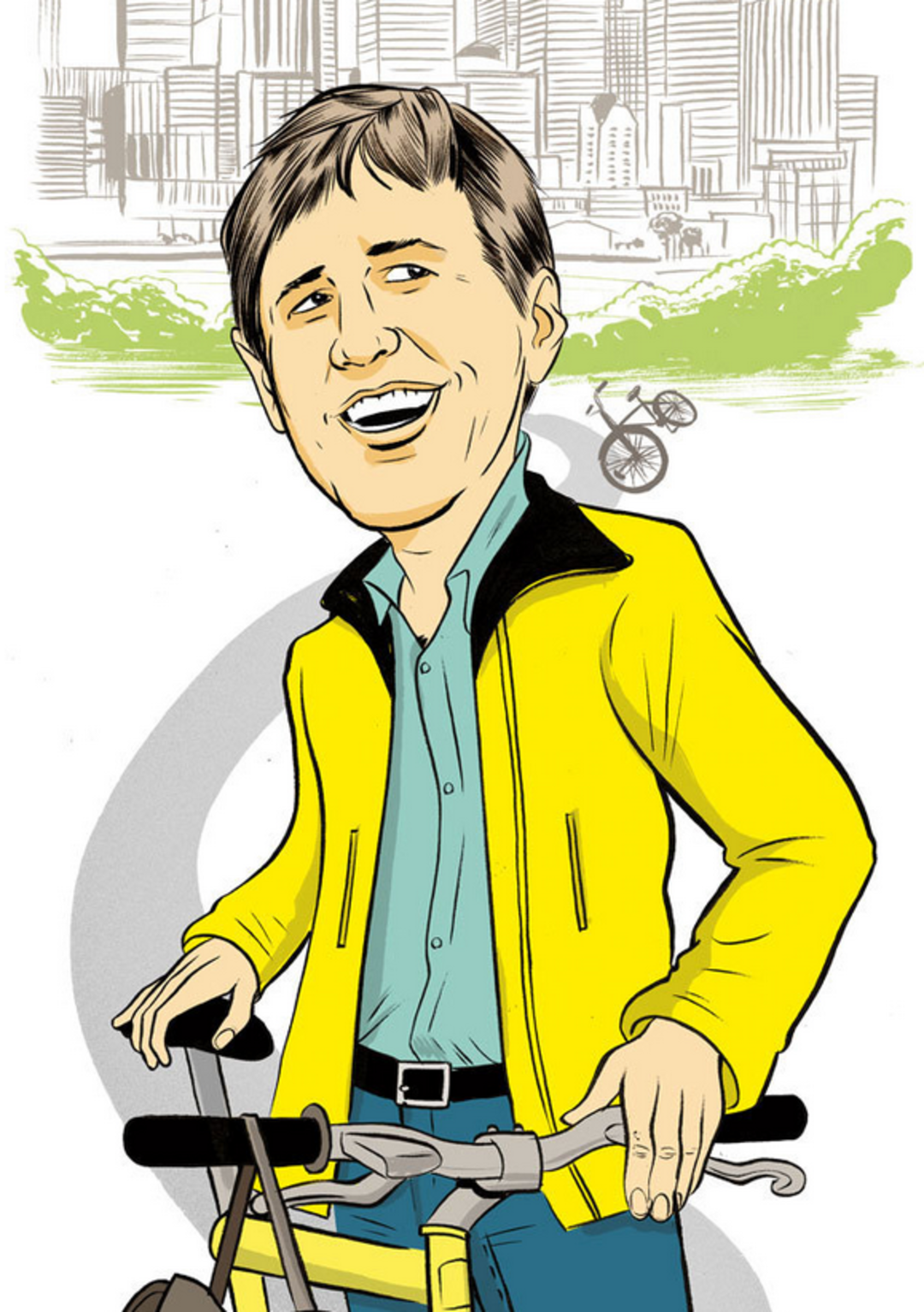Mike After Mike
City council member Mike O'Brien has been in the (PubliCola) headlines lately—defending the city's use of incentive zoning as a tool to create affordable housing, proposing compromise regulations on ridesharing companies like Uber and Lyft that he says will protect the traditional taxi industry without shutting the new-economy innovators down, and standing shoulder to shoulder with socialist city council freshman Kshama Sawant at a City Hall rally for the $15 minimum wage.
This month, I profiled O'Brien for Seattle Met Magazine, describing the one-term council member as as "a hippie with an MBA" whose calm, agreeable style makes it easy for him to forge alliances with others on the council, including some you might assume would be natural adversaries.
O'Brien spent his first term inextricably associated with his longtime Sierra Club colleague, then-mayor Mike McGinn—an association that was both a blessing and, increasingly, a curse. Now that McGinn is out of the picture, O'Brien—who champions many of the same issues McGinn did, including transit, affordable housing, bike infrastructure, and carbon neutrality—has a rare opportunity to forge his own path forward, and emerge as a leader on both traditional social-justice issues and environmental concerns.

Image: Alex Fine
From my feature in this month's magazine:
In his first term he pushed for, and won, a ban on plastic grocery shopping bags, a resolution that Seattle will be carbon-neutral by 2050, a law allowing residents to opt out of receiving Yellow Pages phone books, new rules requiring developers to provide more affordable housing or other amenities in exchange for greater density in South Lake Union, and legislation that provides safe parking places for people living in their cars.
Less successfully, and more controversially, along with his Sierra Club mentor McGinn, O’Brien was a staunch opponent of the downtown deep-bore tunnel, supporting a “no” vote on a nonbinding 2011 referendum on the tunnel and voting against agreements with the state to allow the tunnel to move forward. Unlike McGinn, O’Brien knew when to concede defeat, acknowledging that, right or wrong, Seattle voters said they wanted the tunnel to go forward.
O’Brien took his tunnel loss with equanimity, although he still says he’s disappointed that the state is spending $2 billion on a car-only highway. “At a time when we should be investing billions of dollars in public transit…it’s unfortunate that that’s where our resources are going.” But, he adds, “I’m proud of what I stood for, and yet I don’t get to go back and redo those decisions.”
But O’Brien has struggled at times to escape McGinn’s long shadow. That’s one reason the loss of his onetime ally could paradoxically be a political boon for him, freeing him up to push his own agenda without the constant worry that he’s perceived as the mayor’s minion on the second floor of city hall. As head of the council’s land use committee and the council representative on the board of Sound Transit—two highly influential roles—he’s well positioned to do so.
“It’s more than just being easygoing,” says O’Brien’s council colleague Nick Licata. “I thought Mike McGinn was easygoing. I just don’t think he was very strategic. Mike [O’Brien] understands that to get things done in a legislative arena, you need to keep the door open.”
Read the whole profile here.




